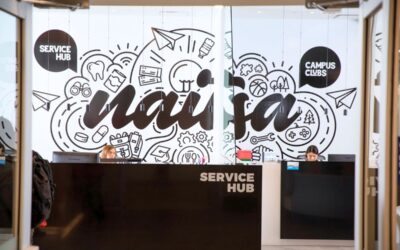By: Eli O’Donnell
A Canadian startup working in Edmonton has created lab-made chicken product.
Future Fields is a tech startup partnered with the University of Alberta’s Health Accelerator program at TEC Edmonton studying cultured meat, where Matt Anderson-Baron is the lead scientist.
“It became very apparent that current food production methods aren’t sustainable,” said Anderson-Baron. “Cultured meat is one way of addressing those issues.”
The process is called cellular agriculture, where scientists take a pinhead-sized bunch of cells from a live animal and encourage them to grow and multiply.
“The idea is to isolate a muscle sample from a live animal, […] and you allow them to reproduce and grow,” said Anderson-Baron.
To put this into perspective, imagine someone (a chicken) built a house out of Lego bricks (the chicken’s cells). Instead of taking apart the house, they use their own bricks to build their own house.
Anderson-Baron explains that it could take as long as five years until lab-grown meats arrive on store shelves.
“And that’s just ground chicken, something more complicated like, say, a steak could be as long as 12 to 15 years out,” said Anderson-Baron when asked on how soon he thinks it could be on the market. “It comes down to how fast the technology and the process is figured out.”
Another factor, apart from research, is public perception. “People are always nervous and apprehensive about new technology and this is no exception,” said Anderson-Baron.
One community who could be especially apprehensive about alternative meat sources are farmers. Alberta produces roughly 42% of all cattle in Canada according to a consensus published by Stats Canada in May 2017. However, Anderson-Baron explains that agricultural scientists like himself are not trying to phase out traditional farming methods.
“I know cultured meat will never completely replace conventional farming, and it’s not meant to. It’s supposed to supplement the supply,” said Anderson-Baron.
He explained that he knows it is a contentious issue, but stresses that the scientific community is not against the agricultural industry. Cultured meat is meant to complement and offer a cheaper, simpler alternative option. He also said nothing lab-grown will compare to an actual farm raised cut of meat, at least not for a long time.
Anderson-Baron believes the vegetarian and vegan community is an important market to break into. He said that for those abstaining from meat due to the animal rights issues surrounding traditional agriculture, cultured meat could be a viable option in the near future.






